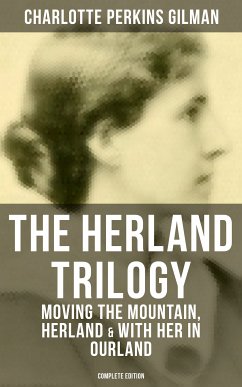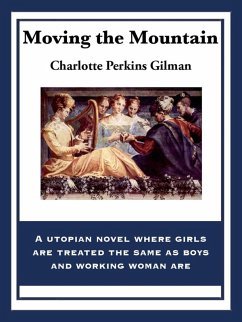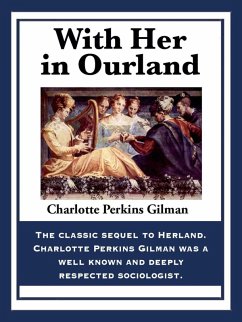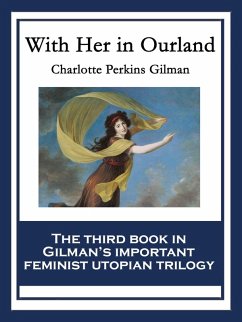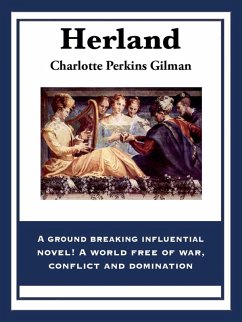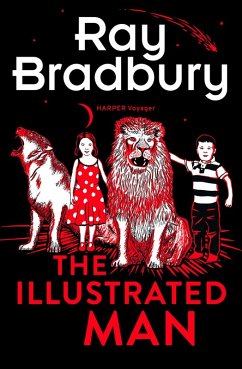
The Herland Trilogy: Moving the Mountain, Herland, With Her in Ourland (Utopian Classic) (eBook, ePUB)

PAYBACK Punkte
0 °P sammeln!
In "The Herland Trilogy: Moving the Mountain, Herland, With Her in Ourland," Charlotte Perkins Gilman presents a thought-provoking exploration of gender equality and utopian ideals through a unique narrative structure. Comprising three distinct yet interconnected works, the trilogy examines the lives of an all-female society, Herland, where traditional gender roles are upended, and communal living fosters a nurturing social order. Gilman's prose is imbued with a didactic tone and sharp wit, making use of vivid imagery and rich characterization to immerse readers in a world that both mirrors an...
In "The Herland Trilogy: Moving the Mountain, Herland, With Her in Ourland," Charlotte Perkins Gilman presents a thought-provoking exploration of gender equality and utopian ideals through a unique narrative structure. Comprising three distinct yet interconnected works, the trilogy examines the lives of an all-female society, Herland, where traditional gender roles are upended, and communal living fosters a nurturing social order. Gilman's prose is imbued with a didactic tone and sharp wit, making use of vivid imagery and rich characterization to immerse readers in a world that both mirrors and critiques early 20th-century societal norms, ultimately advocating for women's autonomy and the reformation of societal structures. Charlotte Perkins Gilman, a prominent feminist thinker and writer, drew on her personal experiences with postpartum depression and gender-based oppression to inform her writing. An advocate for women's rights, Gilman was heavily influenced by the changing societal landscapes of her time, making her works not only a reflection of her beliefs but also a commentary on the progressive movements surrounding women's suffrage and liberation. This trilogy is a must-read for those interested in feminist literature and utopian studies. It invites readers to challenge their perceptions of gender and society, encouraging a reexamination of contemporary values. Gilman's insightful and imaginative narrative offers both inspiration and provocation, making it a crucial addition to modern discussions on equality.
Dieser Download kann aus rechtlichen Gründen nur mit Rechnungsadresse in A, B, BG, CY, CZ, D, DK, EW, E, FIN, F, GR, H, IRL, I, LT, L, LR, M, NL, PL, P, R, S, SLO, SK ausgeliefert werden.




